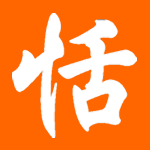http://www.dragonweave.com/chinese-japanese-symbol-charms-g.html
The character shown 妓 does not mean "geisha" when it is just by itself alone.
妓 means "prostitute".
In Japanese and Chinese, "geisha" was originally referred to as 芸妓 and 艺妓. As in any language, the character 妓 has changed its meaning over the years. This is similar to how the English word "gay" has changed its meaning over the last several decades.
Today, 芸者 is used to represent "geisha", which means "person of the [performing] arts" or "art person".
In modern English, the term "geisha" does carry connotations of prostitution. This relates to the American occupation of Japan after World War II, when some young women, desperate for money and calling themselves "geisha," sold sexual favors to American troops.
The confusion between the geisha profession and prostitution has been complicated by Japanese prostitutes, particularly at onsen (hot spring), who wish to co-opt the prestige of the geisha image by marketing themselves to tourists (both Japanese and non-Japanese) as "geisha," and by depictions of geisha in Western popular culture, such as the novel and film Memoirs of a Geisha.


An urban legend come true!
ReplyDeleteNot only that! I saw the character 華 explained as th symbol of "Glory". This character means "flower", "beauty, splendor, elegance" to some extent and "China" but glory, I don't think so. At least it doesn't mean exactly. I double checked at zhongwen.com and j-dict for both Chinese and Japanese.
ReplyDeleteI think the irony here is that even if the jewerly had the correct character(s), the meaning would still be ambiguous because "geisha" means so many different things to different people.
ReplyDeleteActually, that character is still used in the Chinese for geisha, at least in Taiwan - see Memoirs of a Geisha: 藝妓的回憶
ReplyDeleteI hate Memoirs of a Geisha (book and movie). It's just another white-boy fantasy about exotic Asian whores like The World of Suzie Wong a few decades back. Also, my girlfriends and I (Malaysian and Singaporean Chinese) watched the movie and we all thought Zhang Ziyi looks too Chinese to pass for Jap, although Michelle Yeoh and Gong Li could.
ReplyDeleteUlas: my family's surname is Hwa (華) and my dad's always said it means "glory" - it's not a common name. Anyway, "magnificent"/"splendid"/whatever is similar enough to "glory". The pronounciation is also different - my surname is hua4 but when it's used to mean China, it's hua2. (see the Zhongwen.com entry, it shows the pronounciation as 4th tone when used as a surname http://zhongwen.com/d/181/d216.htm)
Hm. Maybe I should get that pendant...
xenobiologista, this is mostly depending on translation of some words and concepts. In my native Turkish, English word of "Glory" is mostly associated along with the concepts "pride", "grandour" and "bravery". "elegance" and "beauty is more at the back. Checked for that too. Thanks for the feedback.
ReplyDeleteHere in Turkey, the concept of Geisha is understood in two ways. One is the image of "women who is devoted and submissive to her partner" as used in "Geisha spirit" which is overly used by dumb model-celebrity circles. Next one is kind of like "Japanese sex worker" God knows how many times I had to explain to friends what geisha meant, tell what they actually did and swear that I'd never been with one while I was in Japan. Boy, those were hard times!